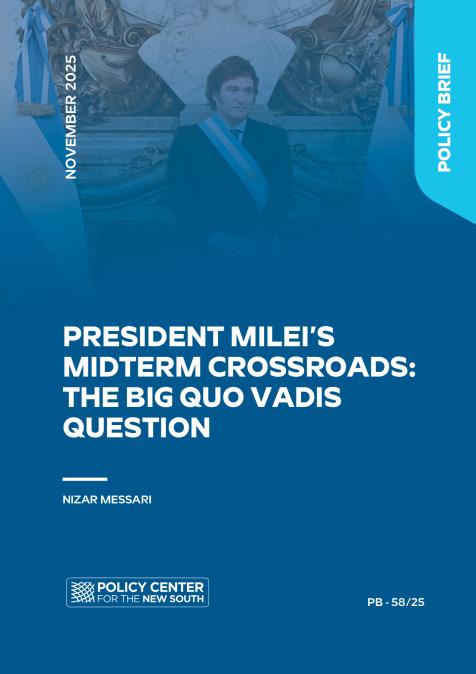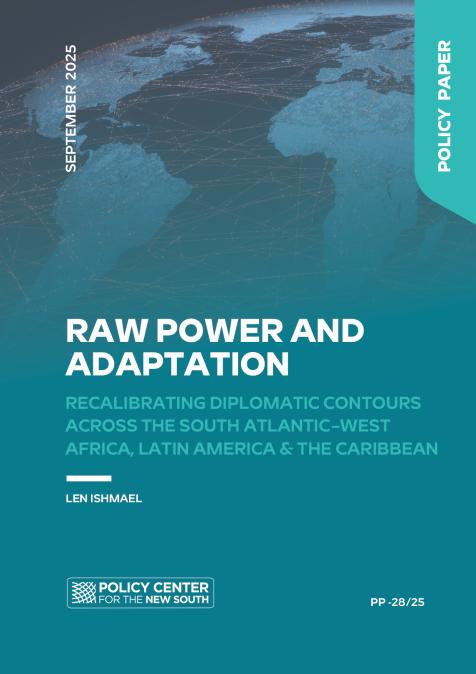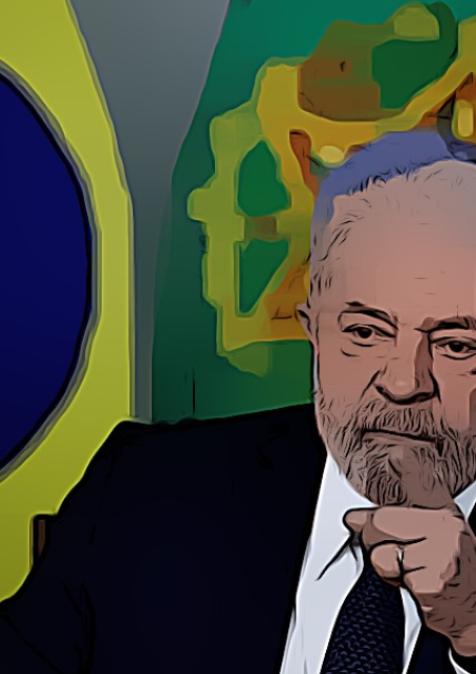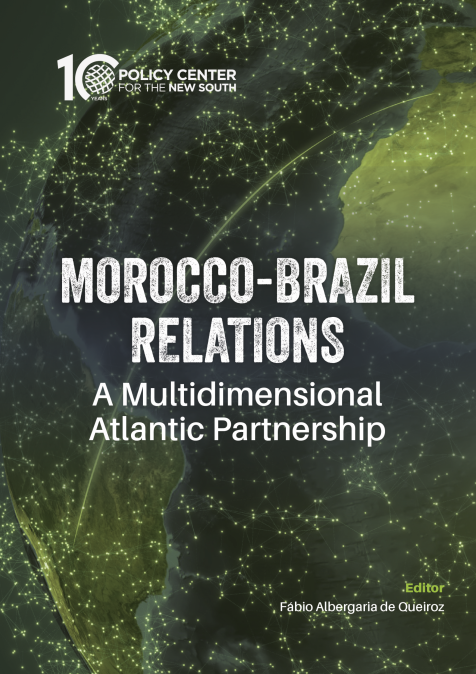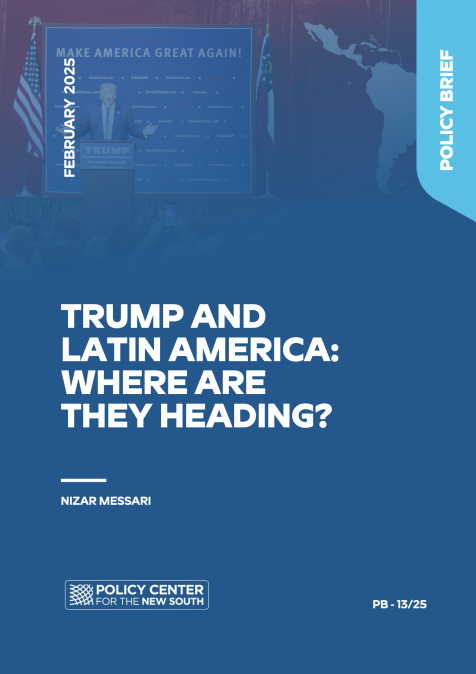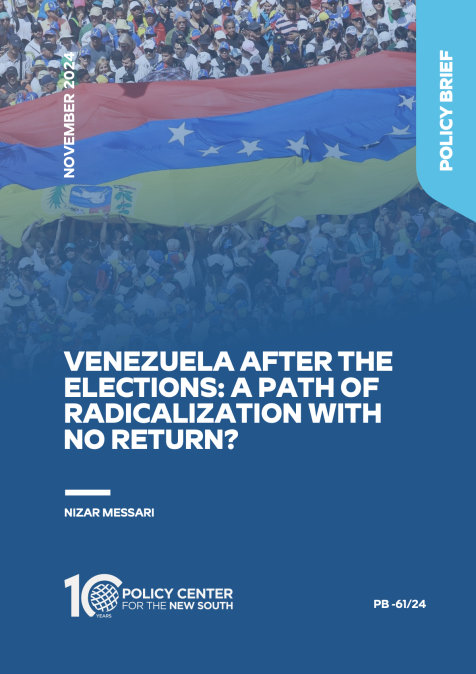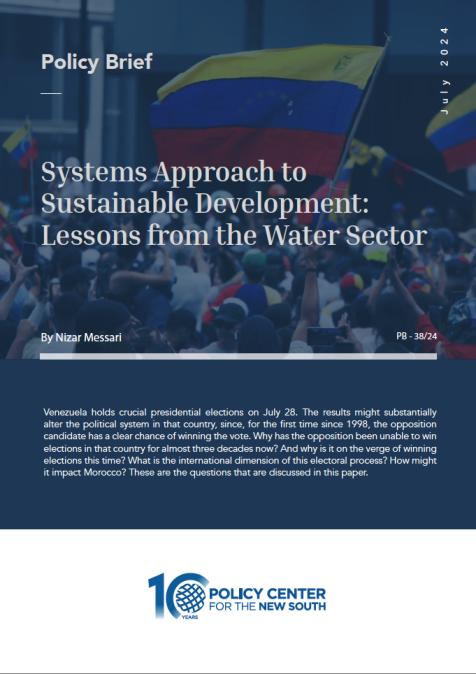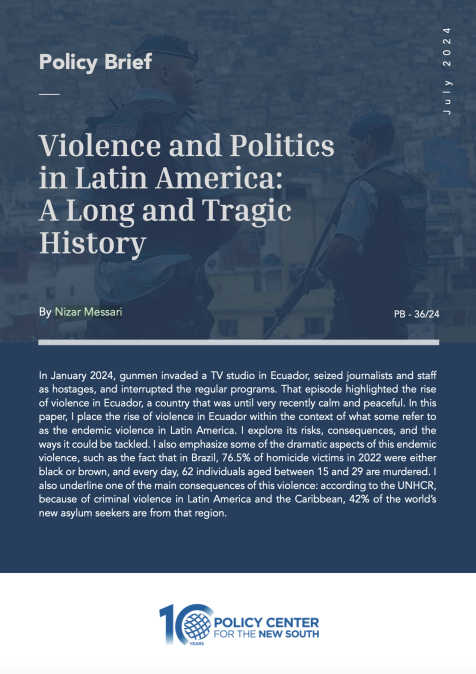Publications /
Policy Brief
The election of Javier Milei as President of Argentina in 2023 created high expectations: how likely was he to succeed in transforming Argentina as he had promised? Would he be able to enforce his economic policies despite his limited backing in the legislature? Could he maintain the strong popular support that brought him to power in the face of the harsh reforms he was committed to implementing? And ultimately, would he be able to neutralize Peronism in Argentina and launch a new political cycle in the country?
With midterm elections in the country, some of these questions have begun to be answered: although Peronism has not been wiped out, Mr. Milei has achieved important successes during his mandate, particularly in economic and electoral terms, which means that he is far from being a thing of the past. Surprisingly, a new and unprecedented—indeed, unexpected by Argentinian standards—player has emerged: U.S. President Trump. How Argentina reached this point is the focus of the present paper.
Introduction
The election of Javier Milei as President of Argentina in 2023 created high expectations: how likely was he to succeed in transforming Argentina as he had promised? Would he be able to enforce his economic policies despite his limited backing in the legislature? Could he maintain the strong popular support that brought him to power in the face of the harsh reforms he was committed to implementing? And ultimately, would he be able to neutralize Peronism in Argentina and launch a new political cycle in the country?
For more than half a century, Argentina’s political system has been dominated by a powerful movement born from the policies and politics of Juan Domingo Peron. This movement has been so influential that even when it lost elections, its resilience allowed it to regroup, revamp, defeat its adversaries, and return to power—often by capitalizing on crises that engulfed its opponents, forcing them to interrupt their mandates and call new elections. In this context, how lasting and sustainable would Mr. Milei’s impact in Argentina be? Would he be the political leader capable of turning the page on Peronism and opening a new chapter in Argentina’s political debate—or not?
With midterm elections in the country, some of these questions have begun to be answered: Peronism has not been wiped out, and despite some significant electoral defeats, it remains a key political player in the country. Meanwhile, Mr. Milei has achieved important successes during his mandate, particularly in economic and electoral terms, which means that he is far from being a thing of the past. Indeed, one of the main outcomes of the midterm elections is the polarization of political life in Argentina, a phenomenon not unlike many other countries worldwide. Surprisingly, a new and unprecedented—indeed, unexpected by Argentinian standards—player has emerged: U.S. President Trump. How Argentina reached this point is the focus of the present paper.
The Context of Milei’s Election
The last presidential election cycle in Argentina was marked by an acute economic crisis, with annual inflation reaching 211.4% in 2023, and the government lacking credibility with international creditors after previous rescue plans had been poorly handled. The fact that the sitting President did not seek a second mandate underscored the low popularity of the government and the ruling Peronist party’s need to present an alternative that could offer voters a genuine opportunity for change.
The primary elections, however, reshuffled the political landscape. Mr. Sergio Massa, the ruling party’s candidate, performed well, giving hope to Peronists that their strategy of presenting a fresh candidate was working. Meanwhile, the main opposition candidate, Ms. Bulrich, disappointed her supporters by finishing third, leaving second place to Mr. Javier Milei—a hard-right economist previously known primarily as a radical commentator on Argentina’s political and economic scene, without prior electoral experience or decision-making roles.
In other words, the primaries revealed a divided national public opinion: one segment wary of dramatic change and leaning toward the incremental reforms proposed by Mr. Massa, and another ready for a major shake-up of the political scene. Milei’s rhetoric further amplified this divide: he attacked what he called “la casta,” the political elite allegedly responsible for Argentina’s century-long mismanagement, promised to replace the Argentinian peso with the U.S. dollar, close the Central Bank, and privatize state-owned enterprises, including the oil company and the national airline.
Although the first-round results were surprising—Mr. Massa came first with nearly 37% of the vote, ahead of Milei, who placed second with close to 30%—the third–place finish of Patricia Bullrich, a right wing politician backed by former President Mauricio Macri and expected to perform better, quickly shifted momentum toward Mr. Milei. With Macri’s backing, this coalition indicated that the runoff would be an uphill battle for Massa. In the evening of the second round, it was therefore unsurprising that Mr. Milei was elected comfortably, securing 55.65% of the vote.
One last note regarding the international context of Mr. Milei’s election, as it inevitably recalls the rise of fellow hard right-wing and anti-“wokeness” candidates in neighboring Brazil (Mr. Jair Bolsonaro) and, above all, in the U.S. (Mr. Donald Trump).
Milei’s Achievements
President Milei lost no time in implementing his economic agenda. To do so, however, he first had to confront his political adversaries by convincing the legislative to grant him the authority needed to deliver on his promises. This meant negotiating with “la casta,” whom he had so harshly criticized—but in doing so, he demonstrated the political pragmatism required of leaders in his position. He also showed that he had learned the lessons of past non-Peronist presidents who had failed to enforce their reform agendas because of the resilience of the Peronists and their allies in the trade unions.
Indeed, one of his boldest moves—secured after difficult negotiations—was to obtain a temporary delegated legislative power, allowing him to legislate without having to negotiate every single step with Congress. This delegated power was part of Mr. Milei’s Omnibus bill, approved in June 2024, which also granted him the authority to privatize state-owned companies, offer fiscal incentives to attract foreign investors, and implement a tax amnesty to encourage citizens to declare undeclared financial assets.
With those major—and hard-won—legislative battles behind him, Mr. Milei began delivering on what he had promised: he slashed the public deficit by cutting spending, privatized state-owned companies, and did not hesitate to use force to crack down on demonstrators.[i] The cost of controlling the deficit was significant: he terminated the contracts of government employees, reduced the public workforce, cut subsidies—including those directed at vulnerable populations—and withdrew support from NGOs assisting the needy. This underlines that the social cost of deficit reduction was considerable. Despite this, Mr. Milei’s popularity did not waver, and he continued to enjoy broad public support, even among those negatively affected by his policies. Many gave him the benefit of the doubt, trusting his promise to fix a “rotten” system and replace it with a new one that would ultimately benefit everyone.
The results of Mr. Milei’s reform began to materialize by the end of 2024 and the beginning of 2025. In December 2024, Mr. Milei triumphantly announced that, for the first time in 123 years, Argentina’s fiscal deficit had been eliminated. Moreover, inflation was considerably tamed, falling from an annual rate of 211.4% in 2023 to 43.5% by mid-2025—still high, but substantially reduced compared to previous levels. The Argentinian peso also stopped depreciating against the U.S. dollar, and market indicators, particularly the stock market, reacted positively to the reforms.
Those encouraging results, although they did not bring significant relief to the middle or lower-middle classes, nevertheless generated hope that Argentina was finally seeing light at the end of the tunnel. A symbolic development reflecting this renewed optimism was the announcement, in April 2025, of a US$20 billion agreement between the International Monetary Fund (IMF) and Argentina under the Extended Fund Facility (EFF)—a step the IMF had refused to take with the previous government.
The agreement signaled to the private sector that the country now had the backing of the Fund, was undertaking reforms aligned with IMF and market expectations, and that those reforms were credible. In sum, the Milei government entered 2025—an election year marked by crucial midterms—on a strong footing. This was particularly important given that Mr. Milei’s party, having been a small force in the previous election cycle, needed to expand its presence in the provinces and in the national parliament to effectively support the president’s reform agenda.
Peronism’s Reaction
The defeat of Peronism in the presidential election had a profound impact on the party. It found itself leaderless—the defeated candidate, Mr. Massa, chose to withdraw from public life, while Ms. Cristina de Kirchner, its long-time leader and outgoing vice-president, was entangled in her legal troubles. Meanwhile, the new president was taking full advantage of his momentum and the grace period typically afforded to newly elected presidents to implement his agenda.
Faced with such unfavorable political circumstances, Peronism’s default strategy was to rely on labor unions to make noise and give a public face to the resistance against the president’s program—a tactic that had proven effective in the past under Presidents Alfonsin and de La Rua (both from the traditional opposition party, the Radicals), and more recently against President Mauricio Macri of Propuesta Republicana (PRO), a moderate right-wing party. Yet, this type of mobilization served merely as a stopgap measure while the party sought to determine its next steps and, above all, who would lead it. The internal leadership struggle that followed was, to say the least, fierce.
Fortune and destiny soon played their part. In a long-awaited and agonizingly anticipated court decision, the historical and symbolic leader of Peronism—former President and Vice-President Cristina de Kirchner, widow of a former President and head of what was arguably the most powerful and influential political dynasty of twenty-first century Argentina—was sentenced to six years in prison and banned for life from holding public office.
This verdict had a double effect on the Peronist movement. On one hand, it rallied the party’s ranks around their symbolic leader and the perceived injustice of her conviction. On the other, it cleared the way for less prominent, less prestigious figures—but also those burdened with less negative baggage than Ms. Kirchner—to step forward and vie for leadership.
The upcoming midterm elections in October 2025 further helped focus the party’s energies. They reminded its members that the stakes extended beyond national politics: local leaders, issues, and mobilizations would be crucial in shaping the national political landscape. In other words, while the overarching goal was to secure a strong presence in parliament, the real political battle was to be fought largely at the local level rather than exclusively on the national stage. A final mobilizing factor for Peronists was that President Milei’s party, La Libertad Avanza, was consistently leading Peronism in opinion polls by an average margin of ten points.
New Directions in Argentina’s Foreign Policy
At this stage, it is relevant to highlight the significant changes Mr. Milei has introduced to Argentina’s foreign policy, both regionally and internationally.
Regionally, within South America, Mr. Milei found himself relatively isolated. Brazil, Chile, Uruguay, and Colombia were all governed by left-wing leaders who sympathized with the Peronists in Argentina and felt uncomfortable with Mr. Milei. This was particularly the case with Brazil, whose President, Mr. Lula da Silva, did not attend the inauguration of Mr. Milei due to personal insults exchanged between the two leaders in the past. Although Argentinian diplomats emphasized that relations with Brazil went beyond personal ties and rested on institutional foundations, and insisted that both countries would maintain their strong connections, the facts indicated growing distance and tension.
Regarding trade relations and the importance of Mercosur, Mr. Milei did not hide his view that trade between both countries was sustained mainly through subsidies and that, without them, trade within Mercosur would be minimal. Consequently—and unsurprisingly—Mr. Milei boycotted a Mercosur summit in Paraguay in July 2024, choosing instead to attend a meeting of right-wing leaders held almost simultaneously in Brazil. Later that year, when handing over the symbolic baton of pro tempore leadership of Mercosur to Mr. Lula, he warned that Argentina would withdraw from the bloc if it failed to reform in line with his economic priorities.
Internationally, one of Mr. Milei’s first acts was to withdraw Argentina’s membership application from BRICS+, a decision with double significance. On the one hand, he did not want Argentina to be part of a bloc viewed suspiciously by the West in general, and the U.S. in particular, as an anti-Western coalition. On the other hand, he sought to avoid alignment with China, toward which he expressed very harsh criticism, while simultaneously positioning himself as very close to the U.S., even under President Biden.
Another notable act was his visit to Israel and his explicit show of support for Prime Minister Netanyahu. This steadfast support brought favorable coverage at home, where Argentina has a significant Jewish community, and where past terrorist attacks had affected Jewish interests—blurring the line between external and domestic impact. The warm relations Mr. Milei established with Netanyahu were only matched by the very negative relations he cultivated with Spain’s socialist Prime Minister, Pedro Sanchez, whom he repeatedly insulted.
But the most significant development in Argentina’s foreign policy was undoubtedly the very warm relationship Mr. Milei established with U.S. President Donald Trump. The similarities between the two leaders and their agendas are striking: both started as political outsiders who imposed themselves with innovative and radical discourses; both gained visibility and popularity through television performances; both disregarded political correctness, often using crude expressions, insults and degrading words toward adversaries and the broader political environment. Most importantly, they shared a liberal economic agenda and a conservative political agenda, bringing them ideologically very close.
The personal chemistry between the two leaders yielded immediate results. Indeed, Mr. Milei was the first foreign head of state whom President-elect Trump met at his Florida residence in Mar-a-Lago, even before his inauguration. In sum, beyond ideological and agenda-based alignment, a strong personal bond developed, translating into effective U.S. economic support for Mr. Milei, as will be discussed subsequently.
2025 Began Well… Before It Went Sour
In more ways than one, 2025 began very positively for President Milei and his political and economic agenda. The early success of his economic reforms—most notably his ability to reduce the budget deficit and rein in inflation, which in turn enabled him to negotiate a favorable accord with the IMF—brought significant credibility with the stock market and private investors, both nationally and internationally. Coupled with the warm relations he had established with U.S. President Trump, Mr. Milei was experiencing a positive and promising political and economic moment, which encouraged him to start planning even more ambitious initiatives. At that stage, it seemed as if Mr. Milei had achieved what reformist non-Peronists predecessors since re-democratization in the mid-1980s had all failed to accomplish. At that point, the sky seemed to be the only limit to the ambitions of Argentina’s president.
It is also worth noting that the accord with the IMF owed as much to the substantial economic reforms implemented by Mr. Milei as to the support his government received from the Trump administration, for the reasons outlined earlier. Indeed, the U.S. is a significant and highly influential player within the IMF and leveraged its influence to secure a favorable deal for Argentina.
However, the benefits of the economic reforms for the middle and lower-middle classes were slow to materialize, and the patience of that segment of the Argentinian population—which had been willing to grant the President a substantial grace period—began to wear thin: unemployment remained high, prices were elevated, and subsidies had been cut. Consequently, the popularity of the President started to decline, and the approval ratings of his government began to suffer.
In this context, scandals that coincided with the start of the austral winter only made matters worse. The first scandal hit very close to Mr. Milei: he promoted a cryptocurrency, $Libra, on his social media, attracting 40,000 investors. Its price skyrocketed by 1,300% in just a few hours before collapsing almost entirely within seconds. Mr. Milei quickly distanced himself from the fallout, but the episode was widely regarded as the first major scandal of his presidency.
The second scandal was also closely connected to him: his sister, Karina Milei, whom he had appointed Secretary General of the Presidency, was accused by a former political appointee—who also happened to be a former lawyer of Mr. Milei—of receiving bribes related to the purchase of medicine for disabled individuals.
Finally, closer to the elections, a leading member of the legislature who has been strongly supported by Mr. Milei was accused of being linked to a drug lord. Despite his initial denials, the accusations were quickly deemed credible, and he was forced to abandon his electoral ambitions.
And then there are the economic challenges: although the inflation rate had been significantly lowered and the economy was back on its feet—which was confirmed by the accord with the IMF—the social cost of Mr. Milei’s reforms remained high. Poverty, while reduced, was still elevated at 38.1%. Annual inflation had come down, but monthly inflation remained stubbornly high at 1.9%, hitting the Argentinian middle class hard. For instance, transport costs rose on average by 3.6% per month, while housing increased by 2.7%. The exchange rate with the U.S. dollar was also climbing, affecting many everyday products.
The austral inferno that Mr. Milei and his majority were enduring must be put into context: as mentioned earlier, Mr. Milei had campaigned on the promise of confronting the “casta” of the privileged who he claimed were enriching themselves while Argentina grew poorer. Yet by 2025, reality was moving in the opposite direction: corruption persisted, even within his closest family circle, and Argentina’s middle class was struggling.
The elections for the legislative power of the Province of Buenos Aires, held on September 7, delivered a clear victory to Peronism at the expense of Mr. Milei and his candidates, confirming the very difficult political moment the President was facing. Indeed, the opposition made substantial gains and solidified its control over its electoral strongholds, a sign that did not bode well for the upcoming midterm elections in October. These results also suggested that the population’s patience might be waning, and that the benevolence shown to Mr. Milei since his elections could be running short. In sum, the midterm elections, traditionally challenging for the incumbent government, had the potential to make the second half of Mr. Milei’s presidency significantly more difficult.
President Trump’s Intervention
It was at this juncture that President Trump decided to extend a helping hand to his ally, Mr. Milei. His first move came in the form of a US$20 billion swap to help Argentina confront unfavorable economic conditions. President Trump made a point of adopting a firm and threatening tone when meeting his Argentinian counterpart, declaring that U.S. assistance was conditional on an electoral victory for Mr. Milei. In other words, if Mr. Milei and his party failed to secure popular support in the midterm elections, the U.S. would not provide the promised assistance.
Mr. Trump’s threat carried risks: Argentinians could have viewed it as undue interference in their internal political affairs, and the opposition indeed leveraged this argument during the campaign. Economically, however, as the initial U.S. support seemed insufficient to stabilize the markets, the U.S. Treasury began buying Argentinian pesos to shore up the currency against the U.S. dollar. This, in turn, fueled speculation and heightened market pressures. In response, Mr. Trump and his Treasury Secretary, Scott Bessent, coordinated additional private bank support for Argentina, also amounting to US$20 billion, to back the government’s reform agenda.
The support Mr. Trump extended to Argentina was not welcomed by all. Some within his political basis—and particularly those who strongly identified with his America First slogan—opposed his financial intervention on Argentina’s behalf. So why did he do it? Beyond the personal bonding mentioned earlier, there was a clear geopolitical rationale: in a region largely governed by leftist or center-left leaders—from Colombia’s Petro to Chile’s Boric, not to mention Venezuela’s Maduro and Brazil’s Lula—Mr. Milei represented President Trump’s most significant political, economic and ideological ally in South America.[ii]
While Ecuador’s President was also an ally, Argentina’s weight and influence in the region were considerably greater. For Mr. Trump, supporting Mr. Milei and giving him a chance to implement his policies was not just about bilateral relations—it was a strategic move to bolster an ally who could help him secure his own re-election prospects in 2027.
Election Results and Future Prospects
Under these circumstances, the October 2025 midterm elections acquired key importance for Argentina and for Mr. Milei. The indications given by the Buenos Aires provincial elections in early September, as well as by the opinion polls, were not encouraging for the president, as his approval ratings were at their lowest in September 2025, at 32.1%. Moreover, the U.S. dollar kept appreciating while the Buenos Aires stock exchange remained in negative territory.
Additionally, the opposition highlighted Mr. Trump’s threats regarding U.S. support if Mr. Milei was not backed in the elections, portraying them as blatant interference in Argentina’s domestic affairs. This further reinforced the general image of uncertainty.
However, despite all the negative news, opinion polls forecasting elections results were far from disastrous for Mr. Milei and his party, indicating his ability to hold ground. In fact, opinion polls were split between showing a narrow victory for Mr. Milei’s party and others showing a narrow victory for Peronists and their allies.
The challenges that would have resulted from an electoral loss¾mixed with the fact that victory was still possible according to those opinion polls¾encouraged Mr. Milei to campaign very hard for his party, to the point of putting his mandate at potential risk. Indeed, in case of an electoral loss, some political observers in Argentina were wondering what would happen if Congress were to vote bills that Mr. Milei might refuse to enforce, and they started speculating about the possibility of an eventual impeachment of the president.
In this sense, Mr. Milei was under threat of repeating the fate of past non-Peronist presidents who either did not finish their mandate or were unable to be re-elected. In sum, the stakes were high for Mr. Milei, and he invested heavily in the electoral campaign in the hope of securing an electoral victory, or at least limiting his losses¾so that, in the worst case scenario, his party would not be a distant second to the Peronists in terms of votes, and would garner enough support and seats in the lower chamber to preserve his veto power or minimize reliance on his allies to sustain it.
However, the results of the elections came as a great surprise to all, including Mr. Milei: his party came first, with 40.84% of the votes, far ahead of Peronists who barely scored 31.66%. Mr. Milei not only obtained a major boost from the Argentinian population by putting his party first, but also obtained a comfortable margin of seats in the lower legislative chamber that would allow him to support his veto.
The day after the elections switched from Mr. Milei having to mend fences with his allies and eventually the opposition¾which would have been the case in case of an electoral defeat¾to enjoying a figurative victory lap. There were many explanations for Mr. Milei’s electoral victory. One analysis emphasized the importance Mr. Trump’s support¾both financial and political¾in explaining the success of the Argentinian president. According to that analysis, without U.S. support, which helped to shore up the economy even if moderately, Mr. Milei would not have been able to convince public opinion that his economic reforms were beginning to produce positive changes for the country. The fact that Mr. Trump also conditioned the continuation of his economic support on Mr. Milei’s electoral victory played a crucial role in moving votes in his favor.
However, although the “Trump factor” cannot be dismissed, it was far from being the only one at play. In a country long governed by Peronist leaders, interrupted only occasionally by short non-Peronist mandates, Mr. Milei managed to mobilize and consolidate the anti-Peronist vote behind him. In this respect, it is also important to note that Mr. Milei’s popularity, although weakened, remained strong¾expressing a solid trust in his reforms and in the direction in which he was leading the country. A significant part of the Argentinian public, having accepted the sacrifices imposed by the reforms, decided to double down and maintain their trust in the president.
Thus, beyond a simple rejection of Peronism, the result also represented an expression of hope for change¾change that would only be possible if Mr. Milei were given the opportunity to continue leading. Finally, Mr. Milei’s strong involvement in the campaign trail and his constant presence on the ground resulted in the mobilization of his supporters¾a mobilization that the Peronists failed to match. Indeed, the elections of October 26 saw the lowest turnout (67.9%) in Argentinian elections since re-democratization, and the low turnout was particularly significant in traditional Peronist strongholds.
Final Reflections
Despite these electoral results, it is still too early to determine whether Javier Milei is on his way to replacing Juan Domingo Peron¾although on the totally opposite side of the political spectrum¾as the new emblematic figure of Argentinian politics and the founder of a movement rather than a mere political party, or whether Peronism will survive and will win again before long. As mentioned earlier, Mr. Milei prepared his presidency carefully, devising a strategy to pass his reforms without being blocked by the legislative, labor unions, or street demonstrations. These initial legislative moves allowed the president to advance his agenda in a coherent and cohesive manner, without making too many concessions or accepting political compromises that could have weakened his reform program.
Although the social cost has been high, Mr. Milei managed to retain the support of large segments of the population, as evidenced by his recent electoral victory. The question is how long the credit he obtained in the midterm elections will last. Peronists have demonstrated in the past their remarkable capacity to rebound¾will they show the same resilience in the next election cycle? Their poor showing in the midterm elections, which traditionally favor the party in opposition, casts doubt on that possibility.
A final remark relates to the importance of Mr. Milei’s economic performance and that of his government. It is clear that a large part of the Argentinian population chose to give his reforms extra time, hoping that current sacrifices will soon bear fruit. However, if these reforms do not begin to show a positive impact on living standards, and if the middle and lower-middle classes do not see their purchasing power improve soon, they will turn against Mr. Milei and his policies, making his re-election more difficult to obtain. Despite only average economic results and the political and corruption scandals surrounding the President’s immediate circle, Mr. Milei managed to pull off an important win. It is now up to him to ensure that he reaches the presidential elections in more a favorable position than the one in which he faced the midterm elections.
[i] Some clarification is needed here: through the legislative powers he had acquired, Mr. Milei imposed restrictions on the public spaces where demonstrations could legally be held. This allowed his government to deem several protests illegal and to suppress them with force. This strategy reflected lessons learned from past reformist administrations: unions affiliated with Peronism had historically organized massive demonstrations that paralyzed public life and gradually eroded popular support for reform efforts. By narrowing the spaces available for protest, Mr. Milei effectively reduced the opportunities for his political opponents to mobilize large-scale dissent or to disrupt his reform agenda.
[ii] It is also relevant to note that Chile and Colombia are scheduled to hold presidential elections in the coming months, and that their current leftist presidents are likely to be replaced by leaders from the right. As for Venezuela, President Trump may have other plans in mind to remove President Maduro from power.

